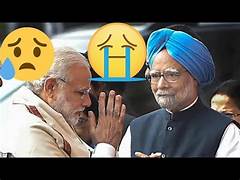Former Prime Minister Manmohan Singh passed away on December 26, 2024, at the age of 92, leaving behind a remarkable legacy that has significantly influenced India’s political and economic landscape.
Economic Reforms and Liberalization
Manmohan Singh is best known for his pivotal role in transforming India’s economy. In the early 1990s, India faced a serious economic crisis, and he was appointed as Finance Minister. He introduced crucial reforms that opened up the Indian economy to global markets. These reforms included reducing trade barriers, allowing foreign investments, and promoting economic growth. His efforts played a vital role in lifting millions out of poverty and establishing India as one of the fastest-growing economies in the world.

Leadership as Prime Minister:- Manmohan Singh
Singh served as Prime Minister from 2004 to 2014. During his tenure, he emphasized inclusive growth, ensuring that development reached all segments of society. His government launched several key initiatives aimed at improving the lives of ordinary citizens, such as:
- National Rural Employment Guarantee Act (NREGA): This program guaranteed job opportunities for rural households.
- Right to Information Act (RTI): This law increased transparency and accountability in government.
- Civil Nuclear Agreement: This agreement strengthened India’s position on the global stage.
Under his leadership, India experienced significant economic growth, with an average GDP growth rate of around 8.5% during most of his time in office.
Challenges Faced:- Manmohan Singh
Despite his many achievements, Singh’s government faced challenges, including allegations of corruption in various scandals like the 2G spectrum case and issues related to the Commonwealth Games. These controversies affected public perception and led to criticisms of his administration’s effectiveness.
Legacy
Manmohan Singh’s legacy is characterized by his commitment to economic reform and social welfare. He is remembered as a humble and intelligent leader who prioritized the country’s development over political gain. His policies laid a foundation that subsequent governments have built upon.
His passing has prompted tributes from leaders across India who recognize his impact on the nation’s growth. Current Prime Minister Narendra Modi and other politicians have expressed their condolences, acknowledging Singh’s contributions to India’s progress.

Conclusion
In summary, Manmohan Singh’s influence on India’s economy and governance will be felt for years to come. His dedication to improving the lives of millions and his role in shaping modern India make him a key figure in the country’s history. As we reflect on his contributions, it is clear that he was not just a politician but a transformative leader whose legacy will endure in India’s future.



